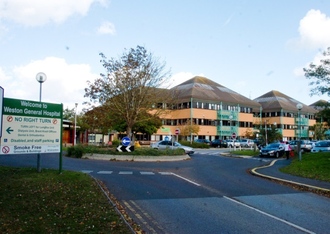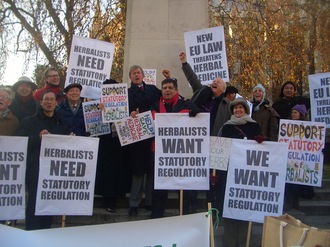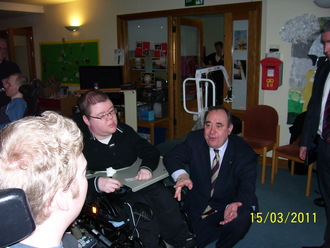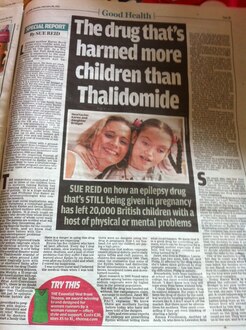-
Stop the privatisation of Weston General Hospital (Weston-super-Mare, North Somerset)For the people of Weston-super-Mare and North Somerset it is vtal to protect our local hospital, its essential sevices and to resist the gradual spread of privatisation undermining the structure of the NHS. The Weston Area Health Trust is deemed too small to exist as a stand-alone trust, and the recent orgaisational changes changes have led to a £5 million shortfall in funding. WAHT has to find a new way of operating either by merging with another trust that has already achieved NHS foundation staus or finding a partner to run it as an operating franchise. We fear a solution where a private company could become the franchise operator as has happened at Hinchingbrooke Hospital. This is unacceptable for all of us that care about keeping our NHS public! So please,please show your support for the NHS andsign our petition against the privatisation of Weston Hospital.266 of 300 SignaturesCreated by Weston Labour Party
-
Raise awareness of N.E.A.D.There are up to three in one thousand people currently suffering from NEAD. It is a very debilitating condition, and one that usually means the person requires a carer 24 hours a day. There is typically a long delay in getting a diagnosis, which is partly due to insufficient knowledge, both of GP's and Specialists, but also a tendency for the condition to be labelled a 'pseudo' condition, that is, an assumption that it is not really a medical condition. This condition affects both men, women and children, and as awareness slowly increases, partly through the efforts of self funded groups such as the NEAD Trust, based in Sheffield, more and more cases are being confirmed. There is no official national organization, and in most cases, no local support. Sufferers, and their carers often have great difficulty in obtaining their benefit entitlements, and in some cases are suffering severe hardship and well as being marginalized by the health service and others. When you are caring for someone who may have multiple fits each day, causing falls, injury, loss of memory and the inability to carry out normal activities of daily living, it can take it's toll on both sufferer and carer. All we ask is that the condition is better publicized, that health professionals are better trained to diagnose and support sufferers, and a health service funded external national support organization is set up to help with ongoing advice and support. Thank you.344 of 400 SignaturesCreated by David J Passmore
-
Better endocrinological service and treatment (B.E.S.T.)I am one of the B.E.S.T. petition team. For years, I suffered severe anxiety, poor health and suffered infertility as a result of doctors not diagnosing me with Graves disease. Even after my condition was recognised, I received appalling treatment. I was given unnecessary Radioactive Iodine treatment, which resulted in a range of unpleasant side effects. It took me five years to find an informed GP and Endocrinologist to provide me with the T3 hormone treatment, which now means I can live a normal life in mostly stable health. I consider myself one of the lucky ones. Huge numbers of people are being left to suffer severe, debilitating symptoms because thyroid and related autoimmune and adrenal dysfunctions are not being diagnosed or treated. Not enough of our GPs and endocrinologists are versed in these issues. For example, Eric Pritchard MSc has just recently written a paper that estimates 300,000 UK sufferers are on the wrong medication: http://tpauk.com/news/8639-medical-negligence-within-endocrinology-are-you-a-victim-- Tens of thousands of sufferers are being prescribed anti-depressants and other unnecessary drugs. Many are left unable to work and are forced to exist on state benefits. Medical practitioners are not being correctly trained to deal with these disorders which are affecting a huge number of people and costing the state millions as a result of misdiagnosis and incorrect treatments. There are hundreds of websites and support groups throughout the world dedicated to these conditions, with sufferers pouring out their stories of how long it has taken to be diagnosed, or receive the correct diagnosis, or receive the correct treatment: http://tpauk.com/ and http://www.thyroiduk.org.uk/tuk/index.html are UK based. A worldwide organisation is http://www.thyroidchange.org/evidence.html Despite the thousands of daily posts and cries for help on these sites, endocrinology seems to neither listen, nor act. The specific reasons for the petition and particulars of the review we require are here http://tinyurl.com/knh5dpp Ultimately, we are calling for the education and training of medical practitioners to be urgently improved so that diagnosis and treatment of these conditions is effective. A timely and radical review would be welcomed by an increasingly knowledgeable and empowered public, as well as by those doctors currently struggling to provide what they know to be the most appropriate treatment for their patients. WE NEED OUR HEALTH BACK.5,550 of 6,000 SignaturesCreated by Diane Bamford
-
Save the practice of herbal medicine in the UKWithout statutory regulation (SR) of herbalists patient choice and safety are at risk. As a result of recent changes to European Medicines law, herbalists must be authorized health professionals (by being statutorily regulated) to continue supplying a range of herbal medicines that have been in use for decades. Now, because of the delay in granting SR, many patients are now without the herbs that they have come to rely on. This is driving some people to purchase herbal medicines from unsafe internet herbal sites without advice from a qualified practitioner. SR will enable the public to consult properly trained practitioners rather than back-street traders. Without SR well-regulated degree level courses are under threat as the future of herbal medicine is uncertain. The loss of a wide range of herbal medicines means many practitioners are struggling to maintain their livelihoods or have been forced to stop practising. In addition, many herbal suppliers are being driven out of business or are making staff redundant. Why the delay? There is no adequate explanation. A promise is a promise! Grant herbalists SR now!8,156 of 9,000 SignaturesCreated by Michael McIntyre
-
Save Independent Midwifery in the UKIndependent midwives are fully registered and regulated by the Nursing and Midwifery Council (NMC) and choose to practice outside the NHS in order to provide continuity of care during pregnancy, birth and post-natally. They are valued by women who seek their support and better maternity outcomes that continuity of care provides. Independent midwives often care for women who have had traumatic experiences in previous pregnancies. For many women, this is an absolute priority. Women must be able to choose where, how and with whom they give birth. Some women have said that if they cannot choose an independent midwife, they would rather give birth alone. We know this is not safe. We are concerned that midwives may be go underground or that women may seek the services of untrained birth attendants. Our midwives also provide vital support to the NHS. Trusts call on the support of their local Independent Midwives when they do not have the skills available. We also relieve pressure on the system when women opt out of NHS care, saving an estimated £10-13 million per year with just 170 midwives. With 2000 expressions of interest from midwives to become independent we could potentially save the NHS in the region of £100 million pounds per annum. From October 2013 thousands of women could be denied this ‘gold standard’ midwifery care as independent midwives have not been able to obtain the insurance cover required by EU law. The Government has promised to support us in finding a solution and has said that independent Midwives should continue to book women who are due to give birth after October but no action has yet been taken. You can find out more about the current situation regarding independent midwifery in the U.K in this recent R4 ‘Woman’s Hour’ programme: http://www.bbc.co.uk/programmes/b01s8qxc You can read more about the history and background to this situation here: http://www.birthrights.org.uk/2013/02/the-end-of-independent-midwifery-consultation-launched-into-mandatory-insurance-for-midwives/ Independent midwives Facebook campaign page here: https://www.facebook.com/ChooseYourMidwife1,748 of 2,000 SignaturesCreated by Annabel Bryant
-
Halt the Closure of Accident and Emergency at Chase Farm hospitalA&Es all over the country are under threat - from Hartlepool in the North to Margate in the South. But the full extent of the impact of closing A&E departments is still unknown. Evidence from Newark showed that when their A&E closed, death rates jumped by more than a third. * When NHS chiefs decided to close Newark A&E they promised that more lives would be saved. However, the opposite to this has happened - more lives have been put at risk and death rates have increased. We can’t let these closures happen across the country. We need a proper investigation into the impact of A&E closures before any more are closed or downgraded. Dr Clare Gerada, Chairman of the Royal College of General Practitioners agrees. The Newark data revealed by The Mail on Sunday points to a close association between A&E closures and mortality. It is clear the provision of emergency care is in crisis across the whole of the NHS. Before any further closures are contemplated, there must be a full, independent assessment of their impact on patients and on the system as a whole.’ * If the recent ‘backdoor’ privatisation of the NHS wasn’t enough, the unjustified closure of our A&E departments * Shocking proof A&E closures cost lives, Daily Mail http://www.dailymail.co.uk/news/article-2323141/Shocking-proof-Accident-Emergency-closures-cost-lives-Death-rate-jumps-THIRD-department-closes.html478 of 500 SignaturesCreated by Kieran McGregor
-
Create respite facilities to support disabled adults with life-shortening conditions aged 21-45Throughout the United Kingdom there is a forgotten group of people. A group of people, many thousands of them, with severe, life-shortening conditions who, because of medical advances are living well into adulthood when in the past they may not have been expected to, find themselves lost in limbo in a position when they are too old to use children's respite services and yet too young for the available adult respite services. Currently, all adult hospice services are set up largely to cater for much older adults suffering from cancer and other terminal illnesses, they are just as unsuitable a place for this age group of people to go to as children's respite services are. They find themselves stuck in the middle with nowhere to go. These respite breaks are vitally important to the young adults and their families, especially for the majority who still live at home with their parents, because it is the only time when the young adults get a break from their parents and for some they can be quite isolated at home so these breaks may be their only opportunity to socialise with others of a similar age. Equally as important if not more so is the break it gives families; the parents get a chance to relax and recharge their batteries, safe in the knowledge that their son/daughter is being well cared for and enjoying themselves. However, without any respite services the parents will have to provide constant care 24 hours a day 365 days a year without a break which will lead to high stress levels for the parents, carer burnout and many other health problems, because caring for a disabled adult with a life-shortening condition is a full-time job. Its not acceptable in any other job to be expected to work all year round without even a single day of rest, so why should it be acceptable in this case? The following articles were printed in The Glasgow Herald newspaper dated 10 May 2013, and they highlight the problems facing young disabled adults with life-shortening conditions. The links to these articles are as follows:- http://www.heraldscotland.com/news/home-news/young-adults-are-being-left-in-limbo-by-hospice-decision.21041635 http://www.heraldscotland.com/news/health/hospice-charity-sets-age-limit-on-services-for-young-people.210418232,408 of 3,000 SignaturesCreated by Robert Watson
-
Saving Bath's Royal National Hospital for Rheumatic DiseasesBecause patients from all over the country who suffer with rare and complex rheumatological conditions rely on the unique reservoir of knowledge, skills and practice which only this hospital offers. The ambiance of the historic hospital buildings in the centre of the city of Bath creates a family atmosphere for both staff and patients from which both benefit. It is also part of Bath's special heritage and has an important place in medical history. This is all clearly affirmed by the latest CQC inspections showing that the country's smallest Foundation Trust operates an excellent service for patients. For more details: www.savethemin.org.uk5,051 of 6,000 SignaturesCreated by George Odam
-
Scrap Council 'wellbeing' surcharges for care home residentsIt is important as the cuts are hurting the pensioners and the disabled, as because of the cuts social services and local councils are charging us a so called well being charge, this will only be well being to the council not us who will have to pay this on top of our rents which are high, £623.48 every four weeks.191 of 200 SignaturesCreated by Daphne Hayden
-
Public Inquiry into Disabilities caused by AntiEpileptic Medication in PregnancyThis is so important as you are looking at a mother who already has a disability who is then at risk of having a child / children with disabilities themselves. THIS IS CAUSING IMMENSE PREVENTABLE SUFFERING. Estimates suggest in excess of 20,000 people have been affected to date. CLINICIANS ARE NOT BEING PROVIDED WITH THE NECESSARY SAFETY INFORMATION by the Medicines and Healthcare Products Regulatory Agency and the European Medicines Agency. Without widespread awareness the number of people affected continues to grow. The impact on the family can be devastating with many ending up as full time carers. Because of this many Mother’s cannot pursue their careers and are reliant on benefits. The tax payer is providing the support services that are required throughout the child's lifetime. FREEDOM OF INFORMATION REQUESTS HAVE CONFIRMED that ONE child’s costs for Health, Education & Welfare will be in excess of £6 MILLION in their lifetime. IN EXCESS OF 20,000 PEOPLE ARE AFFECTED BY FACS! I have 4 children affected with the 2 youngest having Autism. I have become a full time carer and both boys are in specialist schools, as a parent you fear for their future as they will always need a level of support . Their cognitive functioning means they have low self esteem and depression and frequently self harm as they know no other way of expressing them selves. They live in pain on a daily basis with their joints and have few / no friends. Many families will end up with more than one child affected because although there may be facial features at birth they are often not recognised by the doctors and midwives and it is only as they get older and more problems present themselves that they realise there is something wrong. Many symptoms are diagnosed individually due to poor knowledge of Fetal Anti Convulsant Syndromes. WE WOULD LIKE A PUBLIC INQUIRY BY A HIGH COURT JUDGE TO INCLUDE: Independent Systematic Reviews • How medicines and medical products are regulated in the UK. • Why the Consumer has not been protected by British or EU Law. • Why successive governments have failed to improve flawed systems. As a mother I always put my children first and I would not choose to put them through a lifetime of pain, suffering, loneliness and dependence on others. I WOULD WANT THEM TO HAVE A CHANCE OF A FULFILLING LIFE OF THEIR OWN............THAT CHOICE WAS TAKEN AWAY! IF YOU ARE WORRIED DO NOT COME OFF OF YOUR MEDICATION BUT CONTACT YOUR GP / AND OR NEUROLOGIST! More information on the condition can be found at: https://www.oacscharity.org/about-fetal-anti-convulsant-syndromes YOU CAN HELP REDUCE SUFFERING AND SAVE BILLIONS OF POUNDS BY REQUESTING A PUBLIC INQUIRY AFTER THALIDOMIDE WE WERE TOLD IT WOULD NOT HAPPEN AGAIN........IT HAS HAS HAPPENED AGAIN BUT THE NUMBERS ARE FAR GREATER AND STILL RISING. WITHOUT CHANGE IT WILL CONTINUE TO HAPPEN!781 of 800 SignaturesCreated by Janet Stockley-Pollard
-
Scrap the change in mobility rules for PIPUnder the new qualifier, if you can walk from your vehicle to the other side of the road, you probably won't qualify for Higher Mobility Allowance! My Motability vehicle is my contact with the outside world. I can't use public transport, and would therefore be dependent on the goodwill of others. Many thousands are in this position, and would be trapped in their homes or deprived of the allowance under the current legislation. I have a degenerative condition of the spine. As things currently stand I would not qualify for the higher mobility allowance because it is deemed that by walking 20 metres you have sufficient mobility and therefore do not qualify. This is obviously not true. My condition means that it can be difficult to walk those distances. But under the rules as they stand I would not qualify. This will have a huge impact on my life, my wife and children. I was eligible for an adapted car, but under these news rules it may be that I don't qualify. There are countless people like me, facing losing mobility assistance and becoming prisoners in their own homes. The government must rethink this rule change.30,649 of 35,000 SignaturesCreated by Mark Feasey
-
Stop the £75,000 Care Home Bill for OAPsThose who cannot afford £75,000 can defer payment until after their death, and nobody would be forced to sell their home in their lifetime. But once the bill is settled by disposal of the property, many ordinary families will be left with little to show for what their relative has worked for all their life. In Liverpool, where the average home is worth around £132,000, there would be just £57,000 left over after settling the contribution to care costs. Stephen Burke, head of charity United for All Ages, called it “the dampest of damp squibs”. He added: “It is a con of the worst sort. There are fairer and better alternatives. The Government could have raised the capital threshold of paying for care to £200,000.” Labour peer Lord Warner, who sat on the Dilnot Commission, said members thought the cost cap should have been £50,000 at most. He added: “At that level, it would mean on average no-one would have to dispose of more than about a third of the value of their housing assets.” Shadow Care Minister Liz Kendall said the package was a “small step forward” as the assets people could own and still qualify for help had increased five-fold from just £23,250. But she added: “It won’t be fair for people with modest homes.”170 of 200 SignaturesCreated by John Brown
Hello! We use cookies to improve your experience by providing insights into how the site is being used. Find out more.












